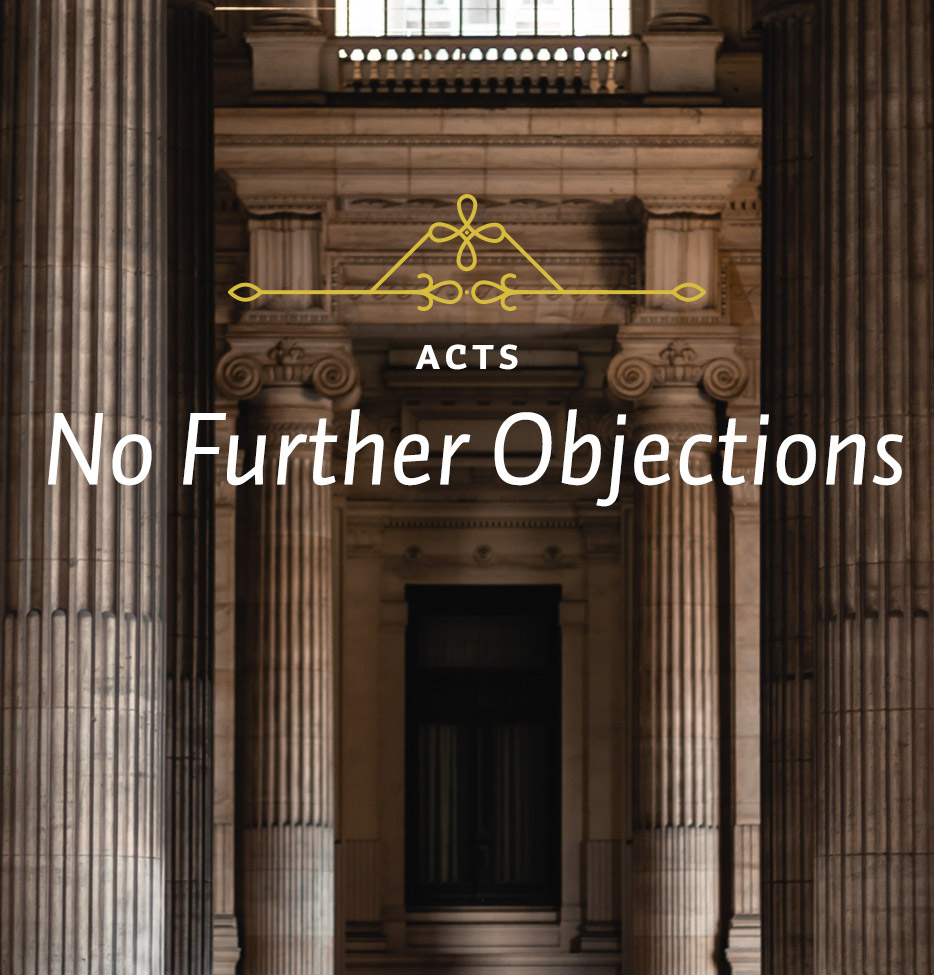Today we conclude our week’s seven-part examination of lessons in divine guidance.
6. God blessed Peter’s preaching with lasting spiritual fruit (v. 15). When Peter began to preach to them, the Gentiles heard the message and believed it, and God showed their acceptance with Him by sending the Holy Spirit, just as He had sent the Holy Spirit upon the apostles on the Day of Pentecost.
I suppose, although it does not say this explicitly, that there was the sound of the rushing, mighty wind and perhaps even the tongues of flame that had been seen on that earlier occasion. Yet whether or not this was the case, the Gentiles did experience speaking in tongues, because that is explicitly stated in Acts 10:46. In the face of such divine favor, not one of the Jews present had the audacity to say, “But they are not circumcised. Let’s attend to that first, and then they can be baptized.”
7. Peter ended with Scripture, as he had begun (v. 17). He said, “Then I remembered what the Lord had said, ‘John baptized with water, but you will be baptized with the Holy Spirit’” (v. 16). In other words, Peter had been led by Scripture initially. Now he also understood that his experience and decision had been confirmed by additional reflection on the Word of God.
Where did Jesus say, “John baptized with water, but you will be baptized with the Holy Spirit”? Interestingly enough, you cannot find these words in any of the four gospels, as you might expect. The words are found at the beginning of the Book of Acts (1:5) as part of what Jesus said to the disciples in the days between the resurrection and his ascension to heaven. Peter did not have our New Testament. The New Testament was yet to be written. But he had heard Jesus’ teaching and remembered what he had heard, and now these words were beginning to direct his thinking.1
The results of Peter’s explanation and defense were all good. Verse 18 says, “When they heard this, they had no further objections and praised God, saying, ‘So then, God has even granted the Gentiles repentance unto life.’”
I notice two things about this. First, the Jews of Jerusalem were convinced that this had been of God. Peter had explained the situation, and they were intellectually convinced. Second, because they were convinced, they praised God. What God had done was perhaps not what they would have preferred. It was certainly not what they expected. Nevertheless, there was evidence that this was truly God’s work. And if God was working, then God was to be praised. They didn’t want to be left out in praising Him.
However, I must add this: Although the Jews were convinced by Peter’s presentation, it was only for a time. They praised God, but not for long. Because not very long after this a party began to grow up in the Jerusalem church that rejected this position. These people said, “We must not allow the Gentiles to ignore the law of Moses. If we let down the barriers in this way, pretty soon everyone will start acting like Gentiles. And we all know how the Gentiles act. We don’t want that. We have to set up barriers. We have to preserve the law of Moses (and our traditions). We have to insist that Gentiles be circumcised, come under the law of Moses, and then keep the regulations that we have been keeping for centuries.” So these questions had to be battled out again and again.
Acts 15 tells about one such struggle, and the matter appears again in Paul’s writings, particularly in his letter to the churches in Galatia.
Prejudice dies hard. But we need to learn from these early lessons regarding the scope of God’s grace in the Gospel. Often we find it difficult to believe that God can accept other people without these others first becoming like us. Yet God does accept them. And it is good He does, because if He did not, you and I would never have become Christians. We would have been excluded. The only reason we are believers is that God does not show favoritism. That is why we are “in.” Therefore, we must not show favoritism ourselves. We must reach out to everyone, and we must not count it a threat when God brings into our fellowship somebody who, from our perspective, just doesn’t seem to fit.
What matters is not whether other people fit in with us. What matters is that they have been accepted by God.
1John Stott speaks of God’s leading in terms of “four successive hammer blows” of revelation: the divine vision (vv. 4-10), the divine command (vv. 11-12), the divine preparation (vv. 13-14), and the divine action (vv. 15-17). See John R. W. Stott, The Message of Acts: To the Ends of the Earth (Leicester, England: InterVarsity, 1990), 194-195.






